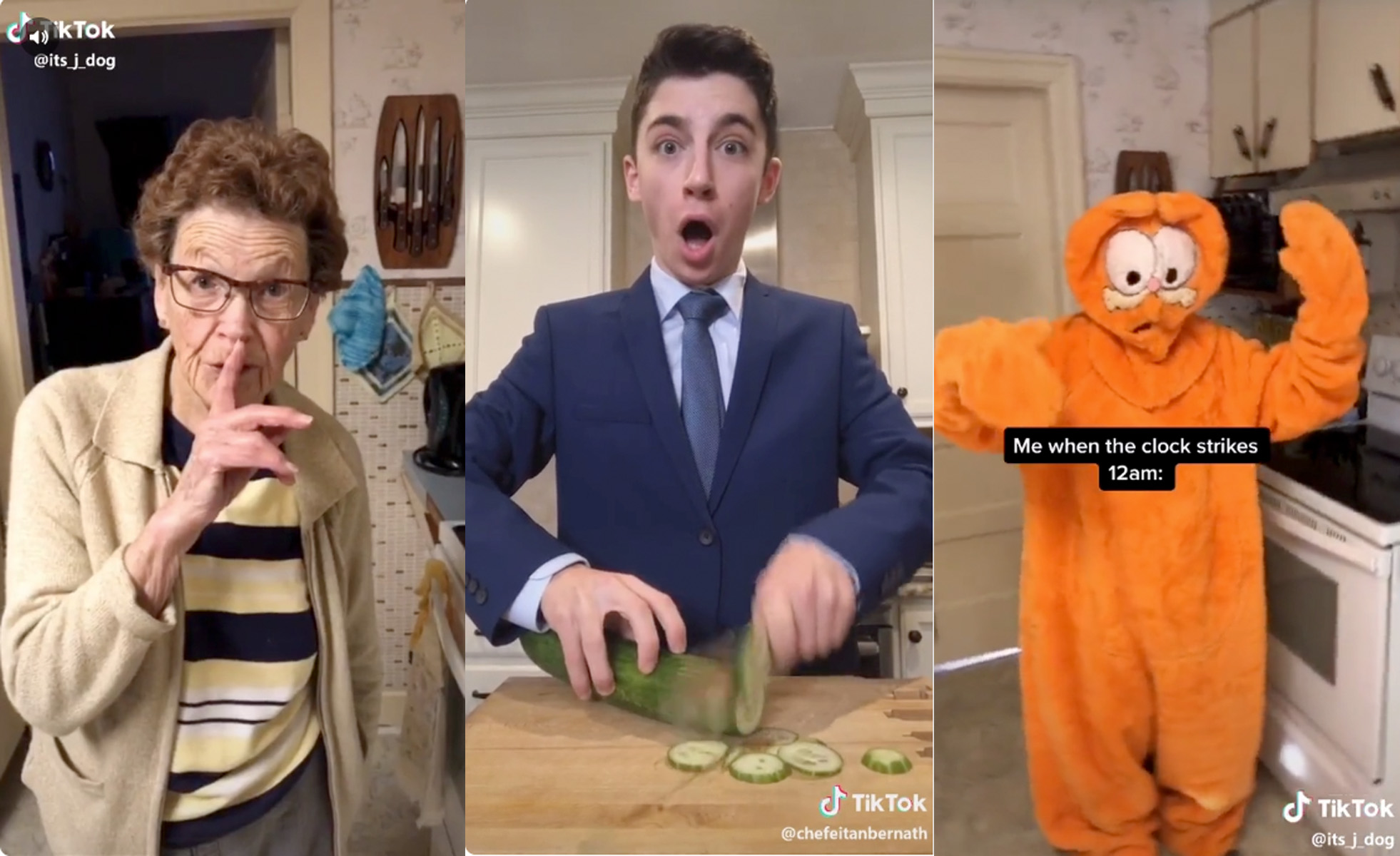- TikTok, a short-form video app popular with Gen Z, has been downloaded more than 1.5 billion times.
- Rules and possibilities for monetization are less clear-cut than more established platforms like Instagram.
- Some TikTok creators are finding new ways to monetize the app that take advantage of its unique, audio-based style, like the possibility of a “virality clause” in brand deals.
- Visit Business Insider’s homepage for more stories.
For influencers looking to make money off their content, TikTok is the “wild west” compared to more established platforms like Instagram and YouTube, at least according to Eitan Bernath, a teen chef and influencer with more than 100,000 followers on both Instagram and TikTok.
TikTok posts rise to popularity differently from posts on Instagram, so, Bernath reasons, his agreements with brands should be different. TikTok is engineered for virality – Bernath built a sizable following on TikTok in a month, reaching the same number of followers it took him nearly five years to build on Instagram. On TikTok, viewers primarily engage with content through the “For You” page, where an algorithm shows videos based on previous videos a person has engaged with. TikTok and its parent company, ByteDance, have remained quiet about what elevates certain videos over others. In comparison, Instagram users open the app to see the feed of people they follow.
TikTok has quickly gained users since its US launch in 2018. It evolved from Musical.ly, an app where users lip-synced along to 15-second audio tracks. China’s ByteDance bought Musical.ly in 2017 and folded it into TikTok. ByteDance is the most valuable private company in the world, worth an estimated $75 billion.
Now, TikTok has been downloaded more than 1.5 billion times, and it is the top free non-gaming iOS app. It might also be closing in on Instagram and Snapchat in numbers of active users, though TikTok hasn’t disclosed those numbers. Instagram reached 1 billion monthly active users in 2018, while Snapchat has over 300 million.
But unlike on Instagram, influencers don't have an established system to make money on TikTok. So some influencers on the platform are finding new ways to monetize the app that take advantage of its unique, audio-based style, like the possibility of a "virality clause" in brand deals. Some are even using livestreaming as a way to make money.
'Virality Clause'
Bernath, who has been doing sponsored posts for years, says that he can usually guarantee a certain number of reactions to a sponsored Instagram post, but on TikTok, it's less clear cut. "This is new for both of us [himself and the brand]," he says, "brands are taking more risks with TikTok."
He says he has a "good sense of what could go viral," and the numbers show he's right. Bernath told Business Insider that one morning he made a bet with a teacher that he could get a million views on TikTok by the end of the school year. He started strategizing some ideas he thought might go viral, and within six hours he'd reached a million views on a video of his school's cafeteria.
The engagement and audience of a TikTok post may be less certain than a comparable Instagram post, but the potential rewards are also much higher. Because of the "For You" page, videos and users can go viral much more easily. Bernath has worked on sponsorships with several brands, but he's still working out his first TikTok deals. Because videos from small accounts can also easily go viral, he says that prices for sponsorships should be based on the "creative aspect, not just numbers of views or followers." He has a proposal for dealing with the risks and rewards of TikTok: a virality clause.
To price TikTok sponsorships, Bernath is thinking about starting at the low end of what he charges for Instagram spots, because the platform's ability to grow a brand is so far unproven. Given the possibilities of going viral, he hopes to charge a base price, with an additional "X number of dollars per million views," which he says seems reasonable to him.
Audio Sponsorships
Some creators looking to make TikTok lucrative have been doing brand sponsorships on other platforms for years, but others, like 19-year-old Skylar Krupa and his 87-year-old grandmother Jenny Krupa, are brand new to the world of monetizing social media.
Skylar runs the account, with videos starring his grandmother and occasionally his grandfather. The account went viral almost by accident, when Krupa publicly posted a video titled "Perks of being old" that was meant to be only for family. It reached over 1,000 views in 15 minutes, and took off from there, proving Bernath's point about any video having the potential to go viral, even without a huge following.
The Krupas mostly make videos for fun, but they have made money off a few posts. Their approach takes advantage of the audio-based nature of TikTok. Audio can be as important as video clips on TikTok, and the app makes it easy for users to use audio posted by someone else. Songs and remixes go viral on the app, and users can easily repurpose audio and apply them to their own videos. These trends have helped launch songs like Lil Nas X's "Old Town Road" from TikTok popularity to the top spot on the Billboard Hot 100, and some artists have begun paying big accounts to use their songs in the hopes of achieving Lil Nas X levels of success.
Skylar came up with a pretty straightforward formula for his grandmother's rate: $25 per 25,000 followers. He told Business Insider that they have to say no to requests often, and he only accepts a song when he can think of a funny idea to accompany it. One song was from artist 24KGoldn, who has already seen success on the app. Aviva Sofia, a star with a large TikTok following, told Paper "The entire reason all this started was from the song "Valentino" by 24KGoldn. I made his song a HUGE trend on the app and ended up collaborating with him and getting to meet him, which was absolutely insane."
According to Skylar, users should be able to tell if a video has sponsored audio like the ones he used. TikTok lets users select audio on a post and go to a page that collects all the posts that have used the same audio. He said that if only a few people have used a song, but they all have a large following, there's a good chance that it was sponsored. Though he did not suggest anything explicitly showing that the audio was sponsored.
The future of making money on TikTok
Both Bernath and Krupa have big plans for their futures on TikTok.
Krupa wants to keep making videos with his grandmother, and the plan is to get to the point where she's an influencer and they're consistently making money off the account. Now that the account has nearly 473,000 followers, they should be making around $470 per sponsored post, based on the rate Krupa worked out.
For Bernath, TikTok became his account with the biggest following just this week. For now, it's the platform he's most excited about, and where he sees the most potential growth, although he hasn't yet created a sponsored post.

